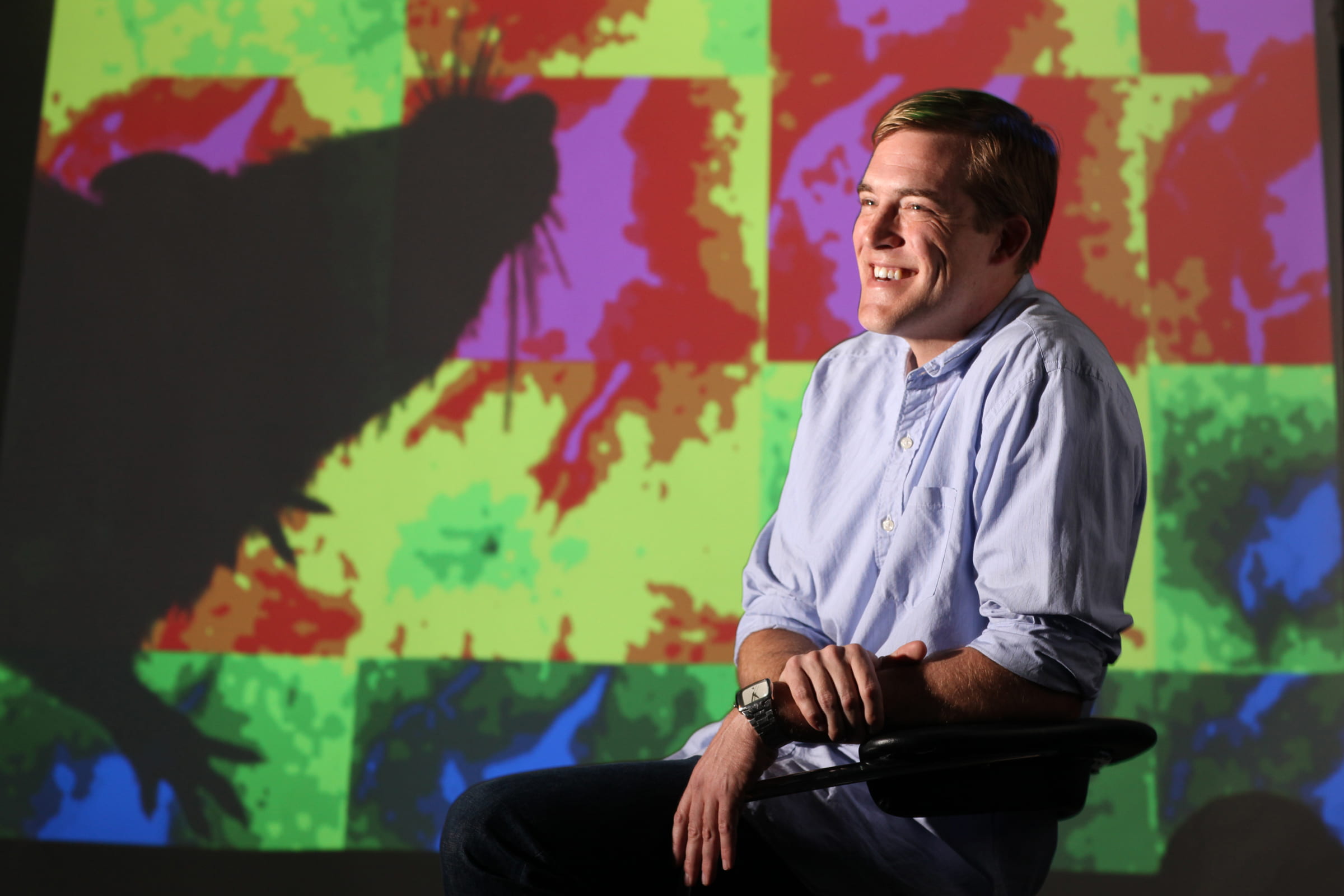Stroke research yields fellowship
Neurobiologist Christopher Lay receives $10,000 Public Impact Fellowship for ‘whisker work.’

Christopher Lay is a surfing, snowboarding UC Irvine doctoral student – or he is when he can fit it all in. Mostly, he’s a young neurobiologist who works seven days a week researching whether crippling strokes in rats can be averted by simply stroking a whisker shortly after the trauma occurs.
Making a quick run to San Clemente or Newport Beach to catch a set of breaking waves “helps me keep my sanity,” he says.
Thanks to his novel research, passion and hard work, Lay has won another kind of break. A doctoral candidate in the Department of Neurobiology & Behavior, he was awarded a $10,000 Public Impact Fellowship. Set up by Graduate Division Dean Frances Leslie, the prize supports UCI grad students whose work has the potential to make a critical difference for Californians and others.
Lay, 31, is a key member of a team led by neurobiology & behavior professor Ron Frostig, whose experimental stroke therapy research could provide a cheap, drug-free and effective way to save lives. About 750,000 Americans suffer strokes each year, at a cost of $74 billion.
The team discovered that by mechanically stroking a single whisker on sedated rats, the effects of ischemic strokes – the most common kind – were avoided. Lay is now testing the technique in rats that are conscious and wiggling their whiskers themselves.
“People don’t walk around under anesthesia,” he says. “So while this initial finding was great, we want to determine if someone in the back of an ambulance can be treated this way, while they’re awake and experiencing a stroke.”
To test post-stroke rats, Lay sets up play areas with tunnels, toys and treats that they explore with their whiskers. “Animals are very inquisitive; they use their whiskers spontaneously,” he says. “So far, the technique is holding up: The stroke is reversed within minutes.”
The next big step is to learn whether touching sensitive spots can also reverse hemorrhagic strokes – the other major kind. It’s impossible for emergency responders to know which type of stroke has occurred, and they don’t want to cause more harm while trying to help.
Lay, a San Clemente native whose mother is a microbiologist, realized he wanted to be a neurobiologist the first time he saw a human brain, as an undergraduate at The College of Idaho. “I was always into science,” Lay says, “but once I had a chance to get my hands on a brain and see how gorgeous it was and how much it could do, I was captivated.”
He read papers by Frostig, called him up and was admitted to UCI’s graduate neurobiology program. “I knew where I wanted to be, and I went for it!” Lay says. “It’s been great. The program is fantastic; the professors are supportive but extremely challenging. I always tell people, ‘UCI is a sleeper. It’s a world-class university that can hold its own with anyplace else.’”
Frostig says Lay’s fellowship is well deserved: “Chris is a delight to work with – an opinion shared by everybody who works with him. He’s bright, very enthusiastic and hardworking – characteristics that served him well in developing a unique, breakthrough research project.”
Lay, who gets by on a modest $27,500 annual student stipend, says the award is “a complete game changer” that has allowed him to stop teaching and plunge deeper into his research. He plans to pay down student loans and then put a bit in a savings account in case his 2004 Ford Escape breaks down or another such expense crops up.
“It’s such a luxury to have a buffer if something happens,” Lay says. “Doing the research, that’s the major benefit. I can be in the lab and confident that if something really crazy comes up, I can handle it. It’s a major comfort.”

